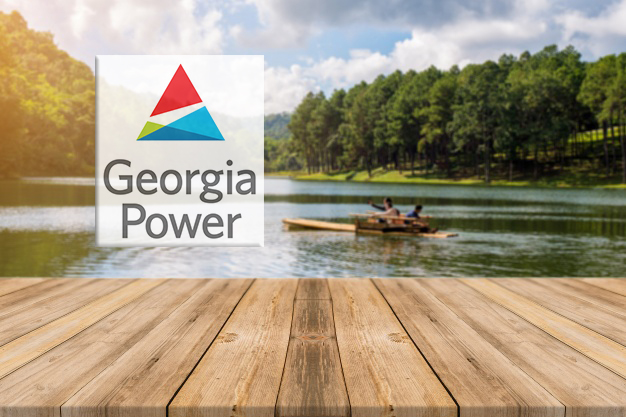
In honor of the third week of Environmental Awareness Month this September, Georgia Power is highlighting its efforts around improving and protecting Georgia’s waterways and the species that live in them, such as shoal bass.
At Georgia Power our projects work towards conservation, restoration and awareness, so that future generations will have a prosperous, healthy and beautiful place to call home. There are four major conservation areas the company is highlighting as a part of Environmental Awareness Month: Land, Sensitive Species, Waterways and Habitats.
Last week, the company featured its conservation of sensitive species, including the gopher tortoise, Georgia’s state reptile. As one of the oldest living species native to Georgia and a keystone species of longleaf pine forests, it supports hundreds of other species. During the first week, the company featured its land management practices, including maintaining and operating over 100,000 acres of land, 60,000 acres of water and more than 15 lake properties as the largest non-governmental provider of public recreation in Georgia.
Week 3: We Improve and Protect Waterways
Lakes: Georgia Power’s 16 hydroelectric generation lakes not only produce clean, renewable electricity, but also provide numerous opportunities to enjoy the outdoors. Georgia Power’s lakes boast some of the best fishing to be found in the state. Public boat ramps offer anglers and boaters convenient locations to experience lakes from the mountains in Northeast Georgia all the way down to the coastal plain of Southwest Georgia. For day-trippers, public beaches and picnic facilities offer a quick getaway. For those who want to extend their stay, camping facilities accommodate everyone, from those with a tent, all the way to families with a full-size recreational vehicle.
Water Grants: In honor of World Water Day this past March, the Georgia Power Foundation highlighted $1 million in environmental grants awarded to eight organizations throughout the state. The grants are funding projects focused on preserving and restoring Georgia’s waterways, lakes and rivers. Through this program, the Foundation is investing in water quality improvement projects that are designed to contribute to measurable benefits to environments and communities across the state of Georgia. These initial grant recipients support water solutions across the Chattahoochee, Savannah, Flint, Coosa, Ocmulgee, Altamaha and Ogeechee basins. These projects are designed to contribute to measurable benefits to environments and communities throughout the state.
Shoal Bass: Shoal bass are native to the Apalachicola River Basin, which includes the Chattahoochee and Flint systems in Georgia and they have been introduced to the Ocmulgee River as well. As their name implies, they prefer rocky areas within the current. Also known as “shoalies,” these fish are both a highly-prized sportfish and a species of conservation concern. Georgia Power has been an active partner in shoal bass research and conservation for more than a decade.
Georgia Power Water Conservation and Stewardship
For over 100 years, Georgia Power has used the natural energy of falling water to generate efficient and economical energy for Georgia. The company sponsors and participates in river and lake cleanups around the state near many of its generating facilities, helping thousands of volunteers pick up millions of pounds of trash from the state’s waterways over the years. Georgia Power also sponsors Rivers Alive, a volunteer waterway cleanup event targeting streams, rivers, lakes, beaches and wetlands across Georgia.
The company is also dedicated to finding new technologies to reduce, conserve and improve the quality of water returned to the environment from power plants such as through the Georgia Power Water Research and Conservation Center (WRCC) located at Plant Bowen and Plant McDonough. To learn more about Georgia Power’s commitment to environmental stewardship, visit GeorgiaPower.com/Environment.
SOURCE Georgia Power


Chattooga Local News
Felon who robbed a Fort Oglethorpe restaurant sentenced to 11 years in prison

Chattooga Opinions
The Joy the Journey: Our True Champion

Bulloch Public Safety
01/26/2026 Booking Report for Bulloch County

Bulloch Public Safety
02/09/2026 Booking Report for Bulloch County

Bulloch Public Safety
02/16/2026 Booking Report for Bulloch County

Bulloch Public Safety
02/02/2026 Booking Report for Bulloch County

Bulloch Public Safety
01/30/2026 Booking Report for Bulloch County







